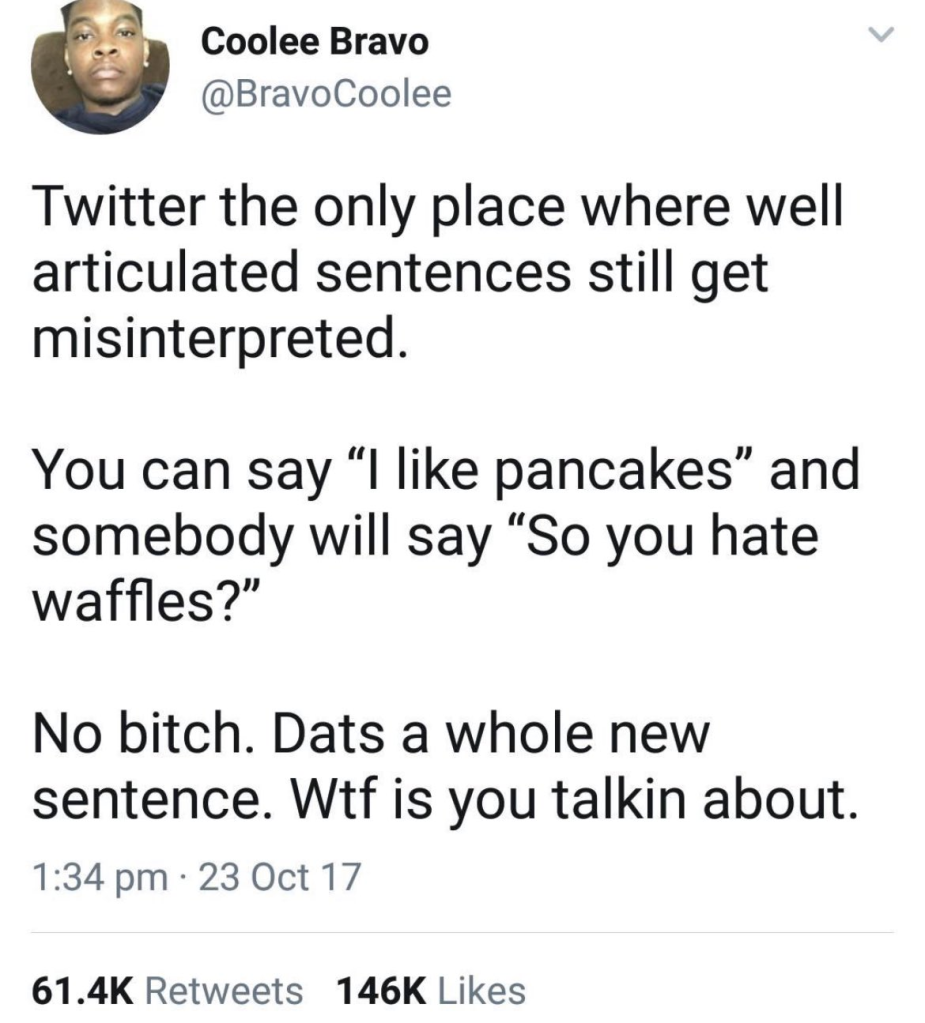A newsletter should not be difficult for me. I’m tuned in. I’m a yapper. All I have is opinions and the only skill I’ve bothered to develop my entire life is my ability to vocalize said opinion. Unfortunately, upon dropping my first newsletter, I disappeared off the face of the Earth for five months. Sorry about that.
Well, that’s not entirely true. I did release a blog post in January about Saltburn. And then after that, I had to study really intensively for an exam. After I passed in March, I tried my best to jump back on the horse. Even while studying, I had a few words written up about the Barbie Oscars controversy. More recently, I’ve started newsletters doing technical analyses on why certain lines from Taylor Swift’s The Tortured Poets Department album don’t work for me AND a reflection on BookTwitter following a major brown-facing scandal that shook the community. And I haven’t posted them. Why? Because Twitter brain is petrifying me.

Twitter (not X, fuck you Elon Musk) is a cesspool of discourse and debate for two reasons.
- People approach tweets from their strict point of view. If your experience doesn’t encompass or align with theirs, then they will try to figure out how their experience fits into yours. This is annoying.
- Example
- Person who likes pancakes: I like pancakes
- Person who LOVES waffles: What about waffles tho? You didn’t mention them…
- Example
- People will approach your tweet in bad faith or a thinly veiled insult. This is worse if they don’t like you.
- Example
- Person who likes pancakes: I like pancakes
- Person who is defensive over waffles: All you pancakecels are the same… So it’s fuck waffles then?
- Example
- Hyperbole is dead.
- Example
- Person who likes pancakes: pancakes are soooo good… if i could only eat one food for the rest of my life it’d be pancakes
- Person who likes waffles: that’s actually really hurtful to waffles who i think would also like to be eaten.
- Example
After a number of years on Twitter, you start adapting to the atmosphere. You begin to tweet defensively, making sure to include exceptions or inclusions in the reply. I personally have started to temper my language, making sure to say “mostly” or “almost always” just so people think I’m not making a totalitarian statement. And when replying to people, when attempting to add nuance to the conversation in good faith, you have to be careful to not come off as someone who could be assuming the worst of them.
It’s exhausting.
My friends tell me I have a major issue when imagining “the reader”. I’m a huge overthinker, and a large fraction of that is dedicated to thinking of how the reader will interpret what I’m writing. Any writer knows that’s a noose around your neck just waiting to tighten. It’s impossible to please or account for everyone’s interpretation when writing. Trying to do so is a fool’s errand. And yet, that does not stop me!
Just kidding. To be more accurate, it does stop me.
Obsessing over the viewpoint of the reader is one of the most paralyzing things a writer can do. It will stop you in your tracks. It will result in an overwritten jumble of garbage. Writing is about clearly expressing an idea, not every idea that could possibly be considered in the conversation.
My Saltburn piece suffered because of this. I got to the heart of what I wanted to say… at least three times from three different angles. That wasn’t needed, but I was afraid if I didn’t account for every angle, every viewpoint, then someone would quote tweet and call me stupid. Which, you know, they’re bound to do anyways.
All this to say, I’m tired. I do this in most of my informal reviews, the wishy washy language, disclaimers that opinions are subjective, the accounting for every angle. It’s my only protection against unfair internet criticism, and I don’t think I’ll ever be able to part from it completely. It has saved my hide a couple of times. But I hate that I have to do it- both because I wish that people would interact with things with an open mind and also because I wish I had the confidence.
Writers are the most insecure people alive, and I am not exempt. It’s a good thing to be critical of your work, because it pushes you to be better, but not to the point of active detriment. I’m rereading this newsletter and realizing I said nothing of value, but I’m going to press publish anyways because I’m suffering from major writer’s block. Nothing is ever going to be perfect, and I have to put something out there and cope with it. Hopefully, the words will flow, and I will be convicted enough to stand behind them. If anything, it’s short and concise, which is exactly what I should be striving towards.